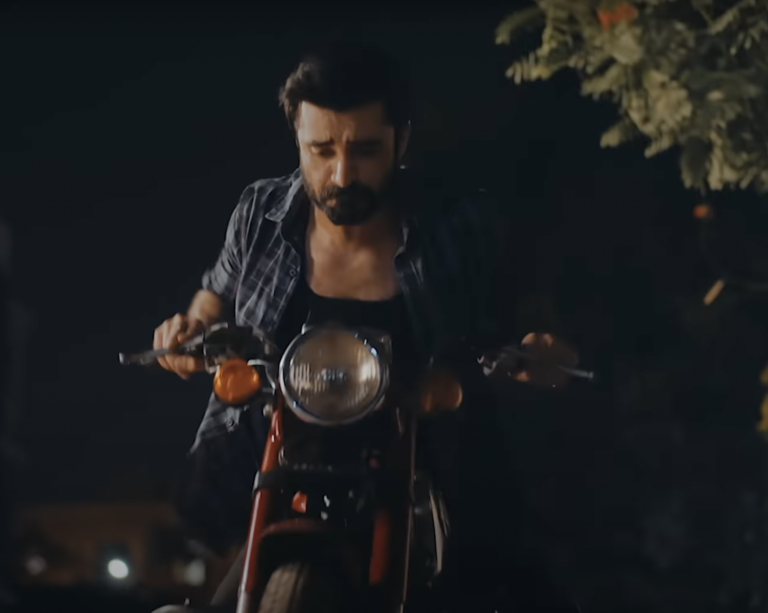Faraar drama has a lot going for it: layered characters, moments of dark humor, and a relentless pace that keeps you hooked. But at the same time, it’s teetering on the edge of overstuffed chaos. The growing cast and crisscrossing plotlines risk overwhelming the story, yet somehow, the absurdity is part of the charm.As we dive into episodes 9 and 10, Faraar takes on a noticeable shift in tone. The lighthearted moments that once punctuated the narrative give way to a more somber, serious undertone.
This transformation is encapsulated in Babrik’s (Danyal Zafar) uncle, who casually suggests that Babrik should just waltz into Europe and start raking in cash. Personally, this stung a little, reminding me of my own Schengen visa rejection two years ago. I only wanted a 10-day trip, and I didn’t get it. But Babrik’s uncle (Hassan Noman) is all, “Europe? No big deal!” Of course, my outrage was short-lived because Uncle Ji wasn’t exactly planning a legitimate European adventure. Let’s just say Babrik’s future is looking… interesting.
Meanwhile, Fasih (Ahmed Ali Akbar) faces mounting pressure to release Naseer (Tanveer Syed) due to a lack of evidence and the looming threat of a citywide strike announced by QIP. This plot twist hits close to home for Karachiites, who are all too familiar with the city shutting down at a moment’s notice over political party disputes. As expected, Naseer’s release is short-lived—he meets a grim end at the hands of QIP henchmen Saleem and Javed. Just as the narrative unfolds, the drama takes a nostalgic turn, injecting a dose of ’90s Bollywood flair that’s both surprising and captivating.

Fasih’s hospitality to Sadia hits new lows—or should I say, new highs of absurdity? He’s taken generosity to a whole new level, giving up his room, his house, and apparently his sanity. Sadia (Mamya Shajjafar) finds him sleeping in his car because, of course, he wouldn’t want his guest to feel uncomfortable. As Fasih and Sadia visit her father’s grave we can sense that there is a genuine connection between these characters But as it often does, tragedy strikes comedic gold. Fasih’s mother (Hina Khawaja Bayat) sees an opportunity in Sadia’s presence. Because why focus on a murder investigation when there’s a potential daughter-in-law in the house? Who wouldn’t want a life partner currently taking refuge because of a murder inquiry? It’s not like that’s a recipe for disaster or anything.

As the episodes unfold, Nazish’s (Sohai Ali Abro) backstory begins to unravel, revealing trauma and resilience. Through a series of poignant flashbacks, we’re transported to her village life with her mother (Iffat Omar). Her life is overturned when in a desperate bid to defend herself, she accidentally takes a man’s life. The weight of that fateful moment has haunted her for a decade, driving her to flee her village. But as fate would have it, Nazish’s attempt to escape her demons ultimately leads her full circle, back to the village she once fled.

Meanwhile, Batish and Faraz are on the run, and their next stop is Sheikhupura. This new location introduces yet another character: Chaudhry Wali (Faris Shafi). At this point, the cast of characters is starting to rival a Pakistani wedding guest list! Chaudhry Wali, the city’s badmaash and Batish’s buddy, extends his hospitality, offering them shelter. Faraz, however, seems uncomfortable. Turns out he’s got a lady friend back home, and Fasih is already on her trail, grilling her with questions. She’s a nurse at a hospital and has been in Faraz’s life for quite some time.
I’m starting to feel bad for Faraz. The guy’s had a rough ride in this series. First, he was just a nameless sidekick; then he became Batish’s voice of reason. Now, thanks to his “friendship” with Batish, he’s lost his home, his city, his job, and his girl. Even the ill-fated Professor Hamdani had a better run! Faraz’s fate is starting to look like the real tragedy of this story.

The real showstopper is the end of the episode! We meet yet another brooding character (yes, the list is still growing), played by Sami Khan. This damaged soul is introduced in a quintessential “tough guy” pose—pumping iron and doing push-ups behind bars. But what really steals the scene is Shah Sahab’s (Mehmood Aslam) threatening call to him inside prison. With his powerful voice and ominous dialogue—“Rest in peace, bro”—Shah Sahab sends chills down your spine.
The series continues to balance intrigue with absurdly entertaining moments. Stay tuned for more updates as we follow this chaotic, captivating story to its next twist.








 Saim
Saim 

 Naqsh begins today, taking over the Faraar tim
Naqsh begins today, taking over the Faraar tim




